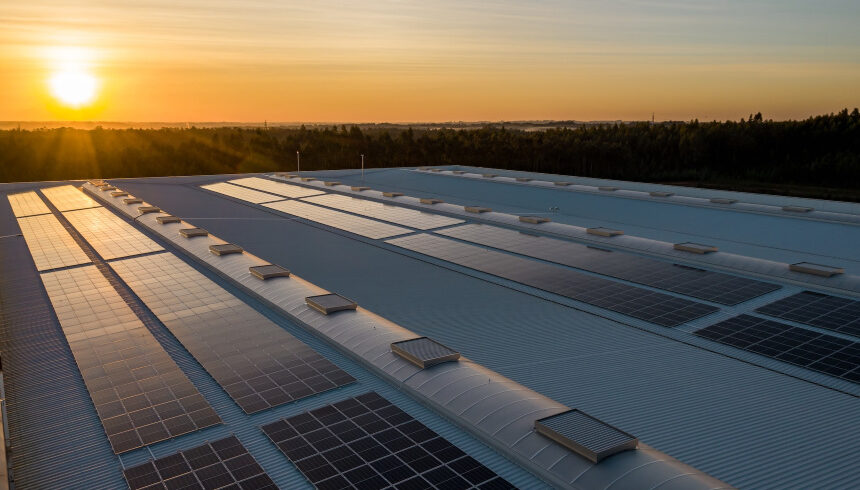In recent years, the hospitality industry has made significant progress toward becoming more environmentally friendly. The high rate of water consumption in the hotel industry, along with its use of consumable goods and electricity, has had a significant impact on the environment, so the fact that this issue is being addressed is fantastic news for everyone. Moreover, the hospitality industry has realized that incorporating natural elements into a resort can boost both the level of satisfaction experienced by guests and the property’s overall profitability. That being said, sustainability has shown potential only in relatively small hotels. For this reason, we started to wonder: can large hotels be sustainable too?

How Do Eco-Friendly Hotels Function?
Sustainable hotels reduce their negative impact on the environment through upkeep, service, logistics, goods, and supplies that are all environmentally friendly. Waste minimization, energy savings, and water conservation are a few of the main ways hotels try to create sustainability. Some of the green solutions necessary to create sustainability have enormous upfront costs. For example, installing photovoltaic panels in a hotel can be pretty expensive. Furthermore, the cost of such a solution grows exponentially in proportion to the size of the hotel.

As a result, it’s no surprise that larger hotel chains aren’t transitioning to a more sustainable model as quickly as smaller chains. However, as more and more tourists become eco-conscious, it will become increasingly important to make sustainability the norm in the hospitality industry.
What Are the Benefits of Sustainability for Hotels
1. Reduction of Their Carbon Footprint
The hospitality industry accounts for more than one-fifth of all environmental impacts attributed to tourism. Environmental and wildlife populations have suffered dramatically due to the hotel industry’s pollution and ineffective waste management. Furthermore, the hospitality industry has exacerbated global warming by producing vast quantities of carbon dioxide and trash. Energy and water consumption are also high. As a result, many hotels have received a great deal of criticism in recent years.
With all this in mind, can large hotels be sustainable? However, it’s not all bleak. If these hotels were to reduce their carbon footprint, they would improve their standing with environmental activists and make them more appealing to the general public.

2. Savings on Running Expenses
Even though the pursuit of financial gain is not an appropriate motivation for sustainability, hotels that adopt such policies frequently report positive financial results. Although stocking a hotel with a large number of plastic straws, takeout containers, and disposable forks and knives may not appear to be a significant expense at first glance, the costs can quickly add up over time. Utilizing strategies that conserve energy and water is another way to cut costs while simultaneously lowering consumption levels. Even the largest hotels might reduce their overall energy consumption by more than 30 percent simply by installing solar panels and using linear generators.
3. Helping With the Preservation of the Hospitality Industry
Most people would agree that seeing the world is the primary goal of traveling. For this reason, environmental protection and preserving natural resources and biodiversity should be a top priority for everyone. Especially those in the hospitality industry. The likelihood of catastrophic natural events increases as more environmental problems emerge each year. This threatens destinations and the tourism industry as a whole. Examples include the loss of snow at Alpine ski resorts and the potential for coastal flooding in the United States.
Hospitality businesses should be at the forefront of implementing sustainable practices and training customers to do the same to prevent negative environmental impacts and guarantee that people continue to travel. Therefore, the most significant benefit of sustainability is the fact that it enables the whole industry to grow and thrive.

How Can Large Hotels Be Sustainable?
There are numerous ways for both large and small hotels to improve their sustainability. The majority of these solutions get to the heart of the problem. Given that the majority of environmental problems stem from water, food, and power waste, this is where the majority of the changes will have to occur. Some of the things large hotels can do to be sustainable are:
- Reduce the amount of wasted food. The most effective solution to this issue would be acquiring less bulk food. Hotels should source their food from local suppliers or grow it if possible. Some of the world’s largest hotels are even more capable than smaller hotels of achieving this.
- Implement innovative water filtration systems in hotel rooms. There was no way to reduce wasted water in hotels for the longest time. However, today we have all the technology necessary to filter and reuse the water we spend. Hotels these days can filter their wastewater. This makes it simple to reduce the amount of wasted water.
- Reduce plastic waste. In addition to recycling, as we’ve already mentioned, phasing out single-use plastics could significantly cut down on plastic waste. Hotels can make a great first step by doing away with single-use plastic items like water bottles and grocery bags.
- Reduce energy consumption. Hotels may be able to reduce their energy consumption by switching to more sustainable and renewable energy sources. Solar is the obvious choice, but it isn’t the only one.
- Establishing a hotel without the use of paper. Paper is simply unnecessary these days. Most property management software handles all management and administrative tasks that typically require paper.

Conclusion
If you were ever wondering can large hotels be sustainable too, hopefully now you have the answer. In fact, most large hotels already have the infrastructure to help them become more environmentally friendly. They are large enough to house a sizable number of solar panels, and the majority of them can recycle water. This simplifies the process of implementing sustainable solutions.
Cover image: photo by Danist Soh on Unsplash

Author bio: Sam Jacobs has over six years of experience as a content writer. His writing has primarily focused on real estate and the hospitality industry. He has recently written for evolutionmoving.com to explore more sustainable ways of living.




